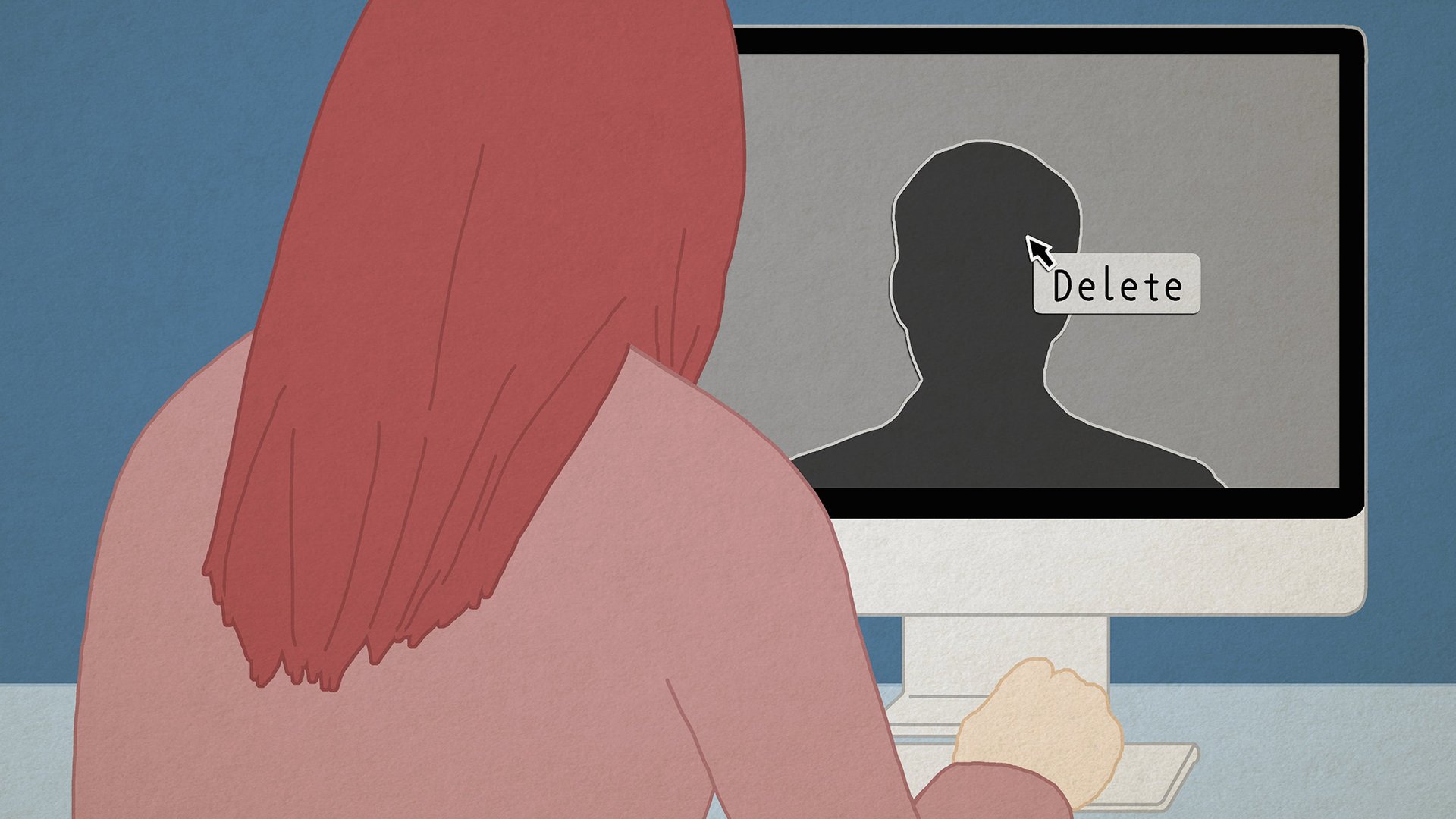How I found closure after confronting my rapist online
The day I stumbled upon his Facebook profile, I knew I had to contact him. I broke out into a sweat every time I pulled up his page, but I had made a promise to myself long ago: that if I ever “found” the man who had raped me as a teenager again, I’d confront him about what he did.


The day I stumbled upon his Facebook profile, I knew I had to contact him. I broke out into a sweat every time I pulled up his page, but I had made a promise to myself long ago: that if I ever “found” the man who had raped me as a teenager again, I’d confront him about what he did.
So I sent him a message, just saying hello; it was all I could manage. A few days later, I got a response: a return hello and polite inquiry into how life was treating me.
I was still too much of a chicken to come right out with it, so we exchanged a few more pleasantries, skirting the obvious, until finally I couldn’t stand it. Even though I had rehearsed what I would say (or in this case, write) to him 10,000 times in my head, my fingers struggled to type the words.
It was a long time coming. I waited seven years before I spoke a word about my sexual assault, which happened when I was 15 years old. I knew the person quite well and struggled to come to terms with what he had done to me. I was also terrified it would happen again, leading me to completely shut down emotionally. I love my parents very much, but I couldn’t bear to confide in them: I didn’t want their worlds to be shattered the way mine had been.
I eventually switched schools, and the distraction of adjusting to new teachers, classmates and friends helped me bury the memory of my trauma. But the relief was only temporary; during my senior year of college I cracked, spilling my secret to close friends and family. To their credit, my loved ones rallied around me. It was an immense relief—given how much time had elapsed since my assault, each passing year only intensified worries that I wouldn’t be believed.
Luckily for me, this fear was unfounded. My support network understood that the reason I had waited so long was simply my way of processing what had happened.
I wish this understanding and compassion was extended to every victim who waits to disclose his or her abuse. But in reality, when survivors don’t follow the “perfect victim” protocol—which, among other things, involves reporting an attack to authorities immediately—it is counted against them. Sexual assault is essentially the only major crime in which the burden of proof lies solely with the victim, if not officially then certainly in the court of public opinion.
Indeed, it’s not at all uncommon for victims to worry they won’t be believed or will ever get justice. This is for good reason; according to an analysis by The Washington Post, the majority of reported rape cases are not prosecuted. Victims who do come forward must do so at their own risk, knowing they expose themselves to personal and professional attack—especially if their abuser is a celebrated public figure, like Bill Cosby. Besides, disclosing a sexual assault requires victims to discuss intimate details, which can compound feelings of embarrassment or shame.
There’s also the familiarity factor: the majority (roughly two thirds) of sexual assault victims know their attackers. As such, they may fear intimidation, reprisal or further violence for speaking about or reporting the crime. They may also be in denial that someone they know, perhaps even loved and trusted, could violate them in such a way.
For me, simply being able to confront my abuser with the consequences of his actions felt like a victory. I had no expectations of a reply at that point (I wouldn’t exactly be in a rush to respond, if I were him), so imagine my reaction when I not only got a response, but a request for dialogue. What followed was what I believe to be a heartfelt apology—an apology for what happened then, and an apology for what I’ve gone through since.
Perhaps because I wasn’t expecting to hear back, I wasn’t prepared for how good those words made me feel. I felt validated, relieved, and like I could finally put that part of my life behind me. That’s not to say my rapist became some sort of savior for me. I saved myself, not him. But those exchanges absolutely helped complete my healing journey.
I realize my story may be very different from other victims.’ The truth is, recovery from sexual assault is complicated and there is no quick and easy fix. People (myself included) wait to come forward for various reasons—not because they have amnesia or are spurned lovers, as Damon Wayans recently joked while jumping to Bill Cosby’s defense against the now dozens of sexual assault allegations leveled against him—but because it’s just damn difficult.
Wayans, and other rape apologists, should take note of stories like mine. Just because a person waits to disclose an attack doesn’t mean they’re lying—and it certainly doesn’t mean they deserve to have their credibility or character questioned. (While defending Cosby, Wayans publicly attacked Cosby’s victims, calling them “un-rapeable” “bitches” whose assault claims were a “money hustle,” since it took several of the accusers years—decades, even—to come forward, something he suggested was a sign they were lying.)
Our culture of victim blaming makes resolution in the aftermath of rape even more difficult. When rape victims are worried they won’t be believed, it seriously hinders their ability to seek justice, or even move on with their lives. But whether achieved through confronting an abuser online or in person, seeking legal action, or merely coming to terms with it privately, every survivor deserves closure.